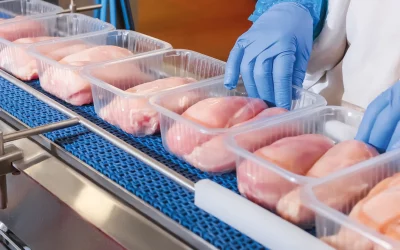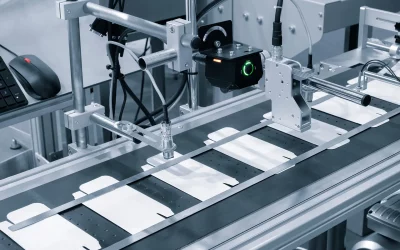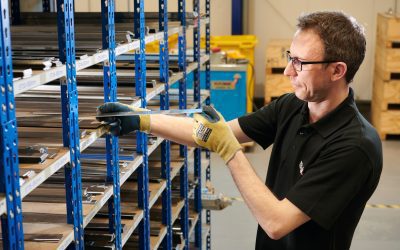This article explores the challenges faced by manufacturers and how specialty blades address them, ensuring optimal performance and adherence to stringent quality standards.
Challenges in Medical Device Manufacturing
1. Precision and Quality
Precision is critical in medical packaging. Even a millimetre of deviation can compromise the sterility and integrity of the packaging. Advanced technologies like CAD/CAM systems are used to maintain precision, but continuous monitoring and stringent quality control are essential to prevent failures.
2. Regulatory Compliance
Navigating regulatory requirements like ISO 13485 and UK Medical Device Regulations (UK MDR) is crucial for manufacturers. Non-compliance can lead to fines, legal issues, and damaged reputations. Manufacturers must be familiar with international standards and demonstrate compliance through detailed reporting.
How Specialty Blades Address These Challenges
Improving Precision and Cut Quality
Specialty blades, precision-engineered from high-quality stainless steel, are crucial in medical packaging. These blades ensure perfect cuts every time, a necessity for packaging that must meet stringent sterility standards. The sharpness of the blades allows for clean slicing through tough materials, reducing the risk of imprecise cuts that could compromise the packaging and, subsequently, the sterility of the product.
Ensuring Material Compatibility
The compatibility of materials with disinfectants and sterilisation processes is paramount in medical packaging. Specialty blades made from materials like titanium and stainless steel offer exceptional resistance to corrosion and wear. This resistance is vital when packaging undergoes rigorous cleaning and sterilisation processes involving harsh chemicals and high temperatures. By selecting blades that are compatible with these processes, manufacturers can minimise the risk of material degradation, reducing the likelihood of packaging failure and extending the product’s lifecycle.
Key Considerations for Implementing Specialty Blades
Cost vs. Benefit Analysis
When implementing specialty blades in medical packaging, conducting a thorough cost vs. benefit analysis is essential. Here’s how to approach it:
Identify Costs:
-
- Initial Investment: Calculate the cost of purchasing high-quality specialty blades.
- Operational Costs: Include expenses related to blade installation, maintenance, and any necessary training for staff.
- Quantify Benefits:
-
- Reduction in Downtime: Estimate the potential decrease in production downtime due to the longer lifespan and better performance of specialty blades.
- Waste Reduction: Assess the reduction in material waste thanks to the precision and efficiency of high-quality blades.
- Fewer Replacements: Calculate the savings from reduced frequency of blade replacements.
- Evaluate Impact on Product Quality:
-
- Enhanced Cutting Efficiency: Measure improvements in cutting efficiency and product quality, leading to fewer defects and less rework.
- Customer Satisfaction: Consider how higher product quality can enhance customer satisfaction and reduce returns or complaints.
- Compare Against Current Processes:
-
- Current Blade Costs: Compare the costs and performance of current blades with the proposed specialty blades.
- Performance Metrics: Use key performance indicators (KPIs) such as production speed, defect rates, and maintenance frequency to gauge improvements.
- Long-Term Savings:
-
- Durability: Factor in the increased durability of specialty blades and how less frequent replacements contribute to long-term savings.
- Efficiency Gains: Consider overall efficiency gains and how they translate to cost savings and increased production capacity over time.
By systematically evaluating these factors, manufacturers can make informed decisions about the financial and operational benefits of investing in specialty blades, ensuring they enhance both efficiency and product quality in the long term.
Supplier Selection Criteria
Selecting the right supplier for specialty blades involves multiple criteria that must be meticulously documented and evaluated. Key factors include the supplier’s capability and expertise, quality of manufacturing processes, and compliance with regulatory standards. It is crucial to establish a partnership with suppliers who not only meet these technical criteria but also align with the business needs of the medical packaging manufacturer. Regular audits and a clear agreement on quality expectations and intellectual property rights are vital components of a robust supplier relationship.
Partnering with MRMK for Your Industrial Medical Knives:
Choosing the right blade involves more than just selecting a sharp tool; it requires understanding the specific needs of your medical packaging operations and the unique challenges posed by different materials. Whether you are dealing with delicate packaging such as blister packs and sterile pouches that require precise handling or tougher materials like medical-grade plastics and foil seals that demand more robust equipment, the correct blade can make a significant difference in productivity and product quality.
MRMK has the knowledge and expertise to correctly identify the best industrial knife to enhance your production line, enabling you to optimise efficiency, minimise downtime, and achieve significant cost savings.
Experience the MRMK difference, where exceptional quality and customer satisfaction are our top priorities, ensuring your operations are always a cut above the rest.
Get in touch with us today and experience the MRMK difference.
Explore MRMK’s custom blade solutions now
For more machine blade buying guides, advice and information, read the MRMK News and Insights Hub…
FAQs
What types of materials can MRMK’s industrial knives handle in medical packaging?
MRMK’s industrial knives are designed to handle a wide range of materials commonly used in medical packaging. This includes delicate materials such as blister packs and sterile pouches, as well as tougher materials like medical-grade plastics and foil seals. Our specialty blades ensure clean, precise cuts, maintaining the integrity and sterility of the packaging.
How do MRMK’s industrial knives improve efficiency in medical packaging operations?
MRMK’s industrial knives improve efficiency in medical packaging by providing consistent, precise cuts that reduce material waste and the need for rework. The durability and sharpness of our specialty blades minimize downtime due to blade replacements and maintenance. This results in smoother production processes, higher throughput, and significant cost savings over time.
What considerations should be taken into account when selecting industrial knives for medical packaging?
When selecting industrial knives for medical packaging, it’s important to consider the specific materials being cut, the required precision of the cuts, and the sterility standards that must be maintained. Additionally, choosing blades made from high-quality, corrosion-resistant materials like stainless steel or titanium can ensure longevity and compatibility with sterilisation processes. Partnering with a reputable supplier like MRMK can also provide expert guidance and support, ensuring the best blade selection for your needs.


 +44 (0) 1909 519815
+44 (0) 1909 519815 


